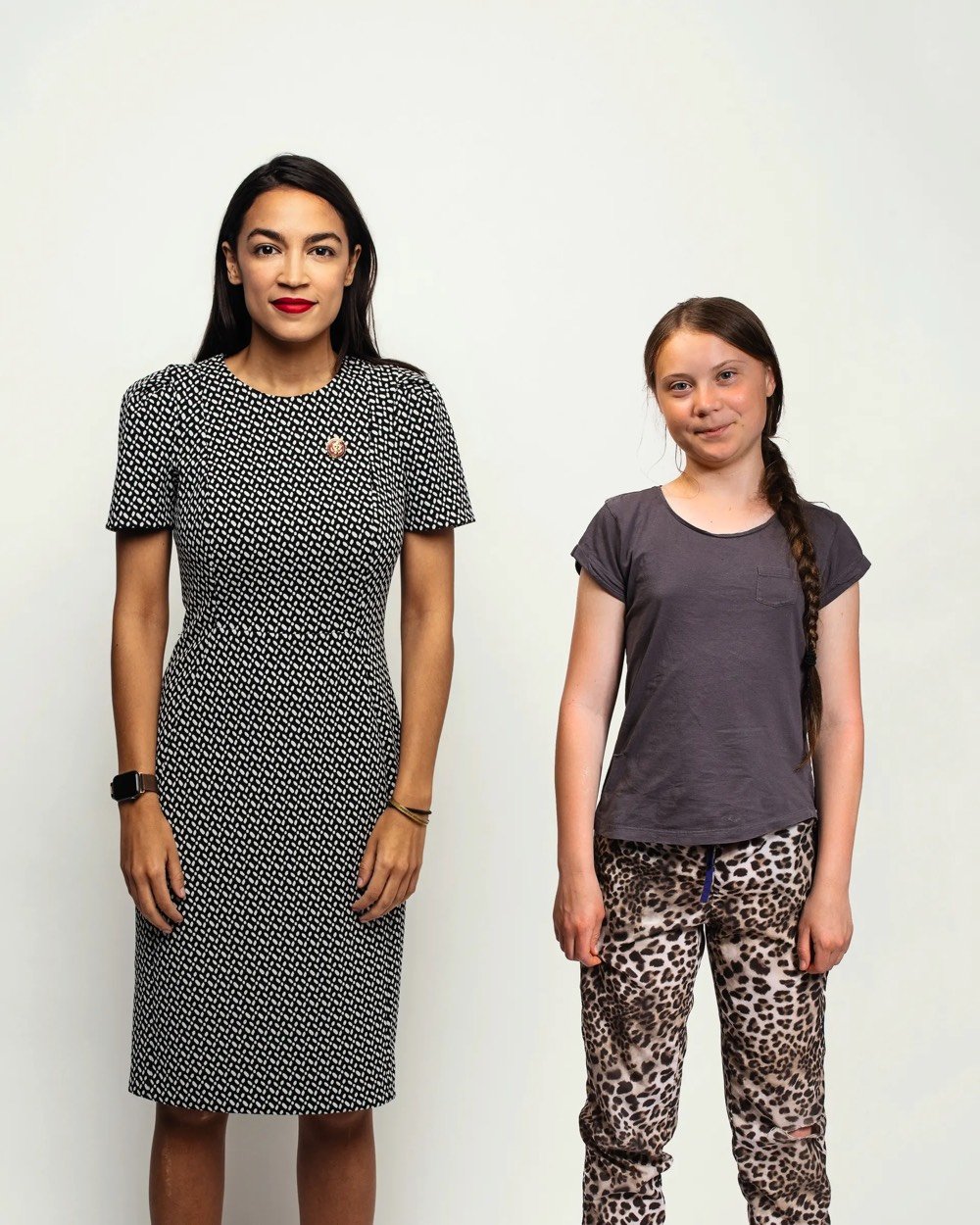Alexandria Ocasio-Cortez in Conversation with Greta Thunberg

Late last month, US Congresswoman Alexandria Ocasio-Cortez and climate activist Greta Thunberg had a lengthy conversation over video chat about leadership, climate change, politics, and activism.
GT: Many people, especially in the US, see countries like Sweden or Norway or Finland as role models — we have such a clean energy sector, and so on. That may be true, but we are not role models. Sweden is one of the top 10 countries in the world when it comes to the highest ecological footprints, according to the WWF — if you count the consumer index, then we are among the worst per capita.
In Sweden, the most common argument that we shouldn’t act is that we are such a small country with only 10 million inhabitants — we should focus more on helping other countries. That is so incredibly frustrating, because why should we argue about who or what needs to change first? Why not take the leading role?
AOC: We hear the same exact argument here. And this is the United States of America! People say, “Well, we should wait for China to do something.” There’s this political culture of people trying to say America First — that the US is the best nation in the world, yet at the same time they’re saying, “Well, China’s not doing it, why should we?”
And I think it’s the same argument: are we going to choose to lead, or are we going to sit on our hands? It seems as if they take pride in leading on fracking, on being the number one in oil, in consumption, in single-use plastics. But they don’t seem to want to take pride in leading on the environment and leading for our children.
Early on in the conversation, they touched on something that’s always bothered me in news stories about or criticism of Thunberg: her age.
AOC: One of the things I’m interested in hearing from you is that often people say, “Don’t politicise young people.” It’s almost a taboo. That to have someone as young as you coming out in favour of political positions is manipulative or wrong. I find it very condescending, as though, especially in this day and age with the access to information we have, you can’t form your own opinions and advocate for yourself. I’m interested in how you approach that — if anyone brings that up with you?
GT: That happens all the time. That’s basically all I hear. The most common criticism I get is that I’m being manipulated and you shouldn’t use children in political ways, because that is abuse, and I can’t think for myself and so on. And I think that is so annoying! I’m also allowed to have a say — why shouldn’t I be able to form my own opinion and try to change people’s minds?
But I’m sure you hear that a lot, too; that you’re too young and too inexperienced. When I see all the hate you receive for that, I honestly can’t believe how you manage to stay so strong.
In disciplines as varied as academics, athletics, chess, and art, the achievements of young people are celebrated, but Thunberg expresses her ideas and opinions about how to address climate change and starts a massive movement of young people around the globe and suddenly 16 is too young to participate in our culture and political process? Bullshit.





Stay Connected